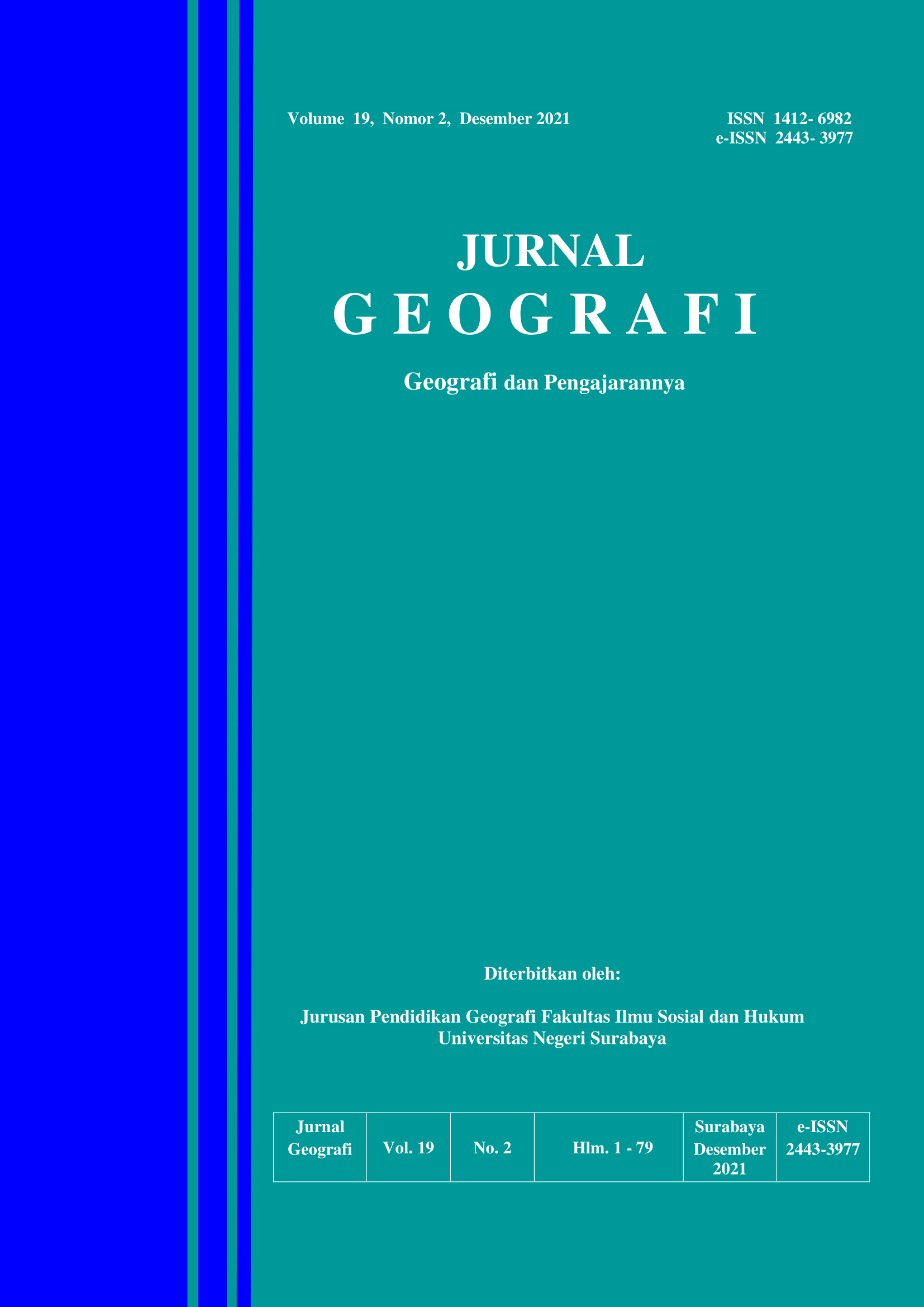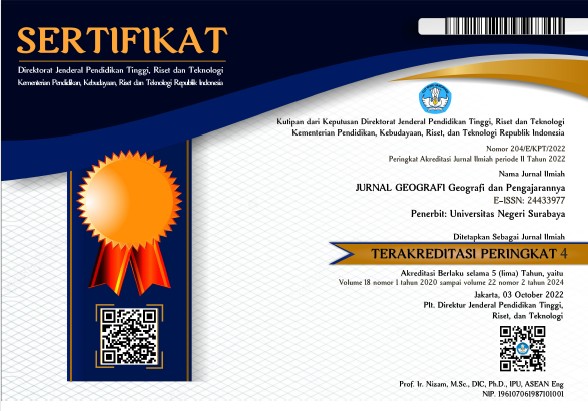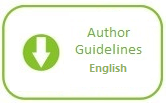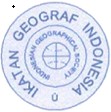GKI COOPERATION CAPABILITIES USING INDONESIAN HISTORICAL GEOGRAPHY TEXTBOOK WITH STAD STRATEGY
DOI:
https://doi.org/10.26740/jggp.v19n2.p27-36Abstract
GKI textbooks are arranged into guide notes thinking so that the discussions that are applied can lead to understanding student material. As a source of learning using the STAD type of cooperative learning strategy, the GKI textbooks are structured to present rich, interesting, easy-to-read, varied, subject matter tailored to the needs and interests of students. The research subjects were Social Studies Education students, Faculty of Social Sciences and Law, State University of Surabaya, class of 2020 who programmed the Indonesian Historical Geography (GKI) course for 16 students through the application of cooperative learning textbooks with the STAD type. Data was collected using documentation, observation, and questionnaires. The feasibility of GKI textbooks is assessed according to the Likert scale by expert validators (materials and media), while student responses use the Gutman scale. Data analysis in this study was carried out through percentages and average values. The results showed: 1) the assessment was very feasible from the expert validator, 2) the response was very good from the students who used the GKI textbook, and 3). The student's cooperation ability is in the sufficient category after carrying out learning with GKI textbooks with the STAD type of cooperative learning strategy.
Downloads
Downloads
Published
How to Cite
Issue
Section
License
Copyright (c) 2021 JURNAL GEOGRAFI Geografi dan Pengajarannya

This work is licensed under a Creative Commons Attribution-NonCommercial-ShareAlike 4.0 International License.
 Abstract views: 255
,
Abstract views: 255
, PDF Downloads: 266
PDF Downloads: 266
















